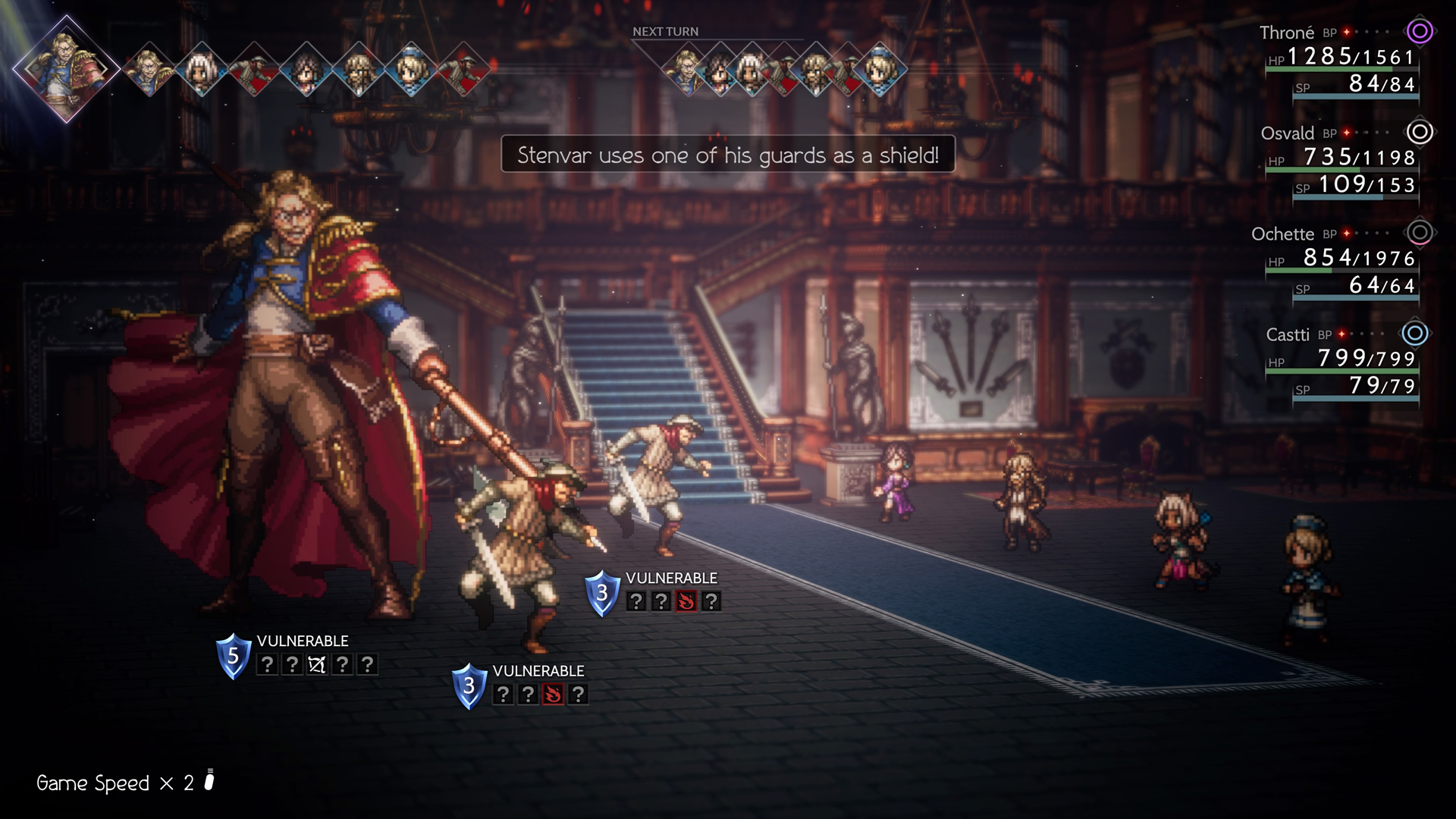When you’re creating a sequel to a game so closely tied to the nostalgia people feel for iconic ’90s JRPGs, what you decide to update and tweak is just as important as what you leave alone. Octopath Traveler, itself a love letter to decades-old RPGs, made decisions like this when deciding what to introduce from its predecessors, but the recently released sequel Octopath Traveler 2 had the unenviable task of doing just that. this and at the same time. be compared to its own original franchise setting, as our own Octopath Traveler 2 review noted. No pressure, right?
To better understand how the developers of Octopath Traveler 2 came to make these decisions, GameMe+ recently had the opportunity to interview the game’s director, Keisuke Miyauchi, its producer, Masashi Takahashi, and its composer, Yasunori Nishiki. with answers in translated Japanese. English. by email.
(Image credit: Square Enix)
GameMe+: Compared to the original, the tasks are the same on all eight characters. How have vocational skills and side jobs changed to keep combat from being too familiar?
Keisuke Miyauchi Director: First, we redesigned the skills and abilities so that those who played the previous game can have a new combat experience. The skills of each profession were then defined according to the qualities of the main characters and the different geographical areas. For example, in the case of Warrior, the “blade/mighty” style in the previous work has been replaced with an emphasis on “East Asian skills/attacks” in this title, and Scholar specializes no only in magic, but also has a palpable depth of knowledge. In doing so, the gameplay experience naturally deviated from what professional inclinations offered in the previous installment.
Speaking of combat, how did the new Latent Power abilities come about? Why did you feel the need to add this change to combat?
“Latent Powers” is an element we added to create a more dramatic combat experience. Battles in this series are fought by mastering the use of “Breaks” and “Boosts”, but the downside is that it can get monotonous as players get used to it. As such, we’ve included an item called “Latent Power” which is relatively random in terms of when it can be used. We hope this will lead to different dramatic twists for each player, for example, in the same boss battle you might be able to break a deadlock using Throne’s latent power, or you might just turn the tables. in time because you the “Latent Power of Ochette” indicator.
One of the biggest criticisms of the original was that the stories of the eight characters rarely intertwined. How did you take that feedback into account to make the eight main tracks feel more meaningfully connected?
Masashi Takahashi, Producer: Although we have offered different ways to structure the story and introduced the Crossroads mechanic, some people may feel that this game is not so different from the previous installment (in fact, there are also some innovations subtle in the previous game!).
The Octopath Traveler series places the highest priority on maintaining a sense of “freedom” in your adventures and travels, but if the stories between characters become too convoluted/dense, that freedom will begin to lessen to a greater or lesser extent. . For example, we may start to encounter situations where we can’t get a character to go to a particular place at a particular time or be with a specific person at a particular time, and so on. With this in mind, we try to create the right balance. Since the underlying concept remains unchanged, we also intentionally use the same slogan: “Where will you go? What will you do? Who will you give life to? All roads are yours. Embark on your own adventure. “
(Image credit: Square Enix)
Do you have a favorite starting character?
Miyauchi: When it comes to my favorite…it’s not easy to decide because all the main characters are my favorites, but I could choose Castti the Apothecary because personally I like the secondary characters. But in the end, I guess it depends on how I feel that day (laughs).
Music is obviously an integral part of any game, but what do you think best defines the music in Octopath Traveler 2? What distinguishes you from your contemporaries?
Yasunori Nishiki, composer: The concept behind the Octopath Traveler series is to “update a good old RPG with modern technology”, so naturally the music followed that path as well. I think the good thing about good traditional RPG music is just that they have such memorable melodies.
Improving music is not something that can be achieved simply by making it sound more extravagant. Making the sound too fancy can make the melody difficult to understand or complicate the music.
We put a lot of effort into making the music for the Octopath Traveler series extravagant while keeping the quality of the melody as much as possible (of course, we had to work really hard to compose those melodies in the first place (laughs).
The resulting compositions may overlap a bit with music from other games in terms of end goal, but I think it’s safe to say that the approach we’ve taken with the Octopath Traveler series is different from other games. as they were designed. the process described. above.
Octopath Traveler 2 is currently available on Nintendo Switch, PlayStation 4, PlayStation 5, and PC. If he ends up being considered one of the the best JRPGs remains to be seen however.

